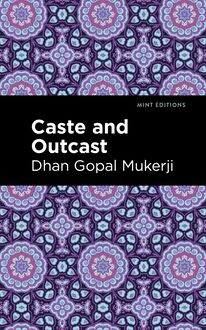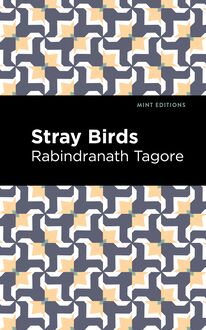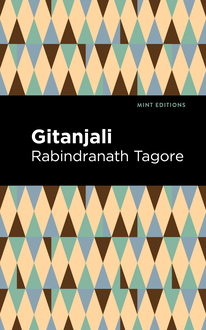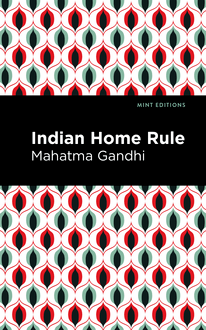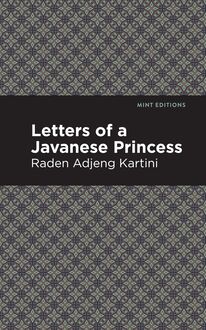-
 Univers
Univers
-
 Ebooks
Ebooks
-
 Livres audio
Livres audio
-
 Presse
Presse
-
 Podcasts
Podcasts
-
 BD
BD
-
 Documents
Documents
-
- Cours
- Révisions
- Ressources pédagogiques
- Sciences de l’éducation
- Manuels scolaires
- Langues
- Travaux de classe
- Annales de BEP
- Etudes supérieures
- Maternelle et primaire
- Fiches de lecture
- Orientation scolaire
- Méthodologie
- Corrigés de devoir
- Annales d’examens et concours
- Annales du bac
- Annales du brevet
- Rapports de stage
La lecture à portée de main
Vous pourrez modifier la taille du texte de cet ouvrage
Découvre YouScribe en t'inscrivant gratuitement
Je m'inscrisRajmohan's Wife and Sultana's Dream , livre ebook
Découvre YouScribe en t'inscrivant gratuitement
Je m'inscrisEn savoir plus
Vous pourrez modifier la taille du texte de cet ouvrage
En savoir plus

Description
Rajmohan’s Wife and Sultana’s Dream (1864/1908) features the debut novel of Indian writer Bankim Chandra Chatterjee and a story by Bengali writer, feminist, and educator Rokeya Sakhawat Hossain. Rajmohan’s Wife, Chattopadhyay’s only work in English, launched his career as a leading Bengali intellectual and political figure. Written in English, Sultana’s Dream originated as a way of passing time for its young author while her husband was away on work. Initially published in The Indian Ladies Magazine, Sultana’s Dream helped establish Rokeya’s reputation as a leading figure in Bengali arts and culture.
Rajmohan’s Wife is the story of Matangini, a beautiful woman married to a violent, jealous man. Unable to marry the man she loves—who happens to be her own sister’s husband—she settles for the villainous Rajmohan, an abusive man who rules his middle-class Bengali household with an iron fist. With the help of her friend Kanak, Matangini does her best to avoid her husband’s wrath, illuminating the importance of solidarity among women faced with oppression. Vindictive and cruel, Rajmohan secretly enacts a plan to rob Madhav, his brother-in-law, in order to obtain and invalidate a will.
Sultana’s Dream is set in Ladyland is a feminist utopia ruled by women, a perfect civilization with no need for men, who remain secluded and without power. Free to develop their own society, women have invented flying cars, perfected farming to the point where no one must work, and harnessed the energy of the sun. With men under control, there is no longer fear, crime, or violence. Ultimately, Ladyland is a world made to mirror our own, a satirical exploration of the absolute power wielded by men over women, and a political critique of Bengali society at large. Sultana’s Dream is more than a science fiction story; it is an act of resistance made by a woman who would shape the lives of her people through advocacy, education, and activism for generations to come.
With a beautifully designed cover and professionally typeset manuscript, this edition of Bankim Chandra Chatterjee and Rokeya Sakhawat Hossain’s Rajmohan’s Wife and Sultana’s Dream is a classic of Bengali literature and utopian science fiction reimagined for modern readers.
Sujets
Informations
| Publié par | Mint Editions |
| Date de parution | 21 avril 2021 |
| Nombre de lectures | 1 |
| EAN13 | 9781513277813 |
| Langue | English |
| Poids de l'ouvrage | 3 Mo |
Informations légales : prix de location à la page 0,0400€. Cette information est donnée uniquement à titre indicatif conformément à la législation en vigueur.
Extrait
Rajmohan’s Wife and Sultana’s Dream
Bankim Chandra Chatterjee and Rokeya Sakhawat Hossain
Rajmohan’s Wife and Sultana’s Dream was first published in 1908.
This edition published by Mint Editions 2021.
ISBN 9781513277400 | E-ISBN 9781513277813
Published by Mint Editions®
minteditionbooks .com
Publishing Director: Jennifer Newens
Design & Production: Rachel Lopez Metzger
Project Manager: Micaela Clark
Typesetting: Westchester Publishing Services
C ONTENTS R AJMOHAN’S W IFE I. T HE D RAWERS OF W ATER II. T HE T WO C OUSINS III. T HE T RUANT’S R ETURN H OME IV. T HE H ISTORY OF THE R ISE AND P ROGRESS OF A Z EMINDAR F AMILY V. A L ETTER— A V ISIT TO THE Z ENANA VI. M IDNIGHT P LOTTING VII. L OVE C AN C ONQUER F EAR VIII. F OREWARNED AND F OREARMED IX. W E M EET TO P ART X. T HE R ETURN XI. W HEN T HIEVES F ALL O UT XII. T HE F RIENDS AND THE S TRANGER XIII. T HE P ROTECTRESS XIV. B ETWEEN R IVAL C HARMBERS XV. C ONSULTATIONS AND C OUNCIL XVI. W HAT B EFELL O UR H ERO XVII. T HE V IGILANCE OF L OVE XVIII. C APTORS AND C APTIVE XIX. M ADHAV AND T ARA XX. S OME W OMEN ARE THE E QUALS OF S OME M EN XXI. T HE L AST C HAPTER IN L IFE’S B OOK— A ND IN T HIS C ONCLUSION S ULTANA’S D REAM
RAJMOHAN’S WIFE
I
T HE D RAWERS OF W ATER
T here is a small village on the river Madhumati. On account of its being the residence of wealthy zemindars it is regarded as a village of importance. One Chaitra afternoon the summer heat was gradually abating with the weakening of the once keen rays of the sun; a gentle breeze was blowing; it began to dry the perspiring brow of the peasant in the field and play with the moist locks of village women just risen from their siesta.
It was after such a siesta that a woman of about thirty was engaged in her toilet in a humble thatched cottage. She took very little time to finish the process usually so elaborate with womankind; a dish of water, a tin-framed looking-glass three inches wide, and a comb matching it sufficed for the task. Then, a little vermilion adorned her forehead. Last of all some betel leaves dyed her lips. Thus armed, a formidable champion of the world-conquering sex set out with a pitcher in her arm and pushing open the wattled gate of a neighbouring house entered within it.
There were four huts in the house which she entered. They had mud floors and bamboo walls. There was no sign of poverty anywhere, everything was neat and tidy. The four huts stood on the four sides of a quadrangle. Of these three had entrances opening on the yard, the fourth opened outwards. This last was the reception room, while the others, screened on all sides, constituted the zenana. Some brinjals and salads were growing on the carefully tilled plot of land in front of the raised terrace before the outer room. The whole was enclosed by a reed fence with a bamboo gate. So the woman could easily make her way into the house.
It is superfluous to add that she went straight towards the zenana. I know not where the other inmates of the house had gone after their siesta, but at that time there were only two persons there—one, a young woman of eighteen bent over her embroidery and a child of four immersed in play. His elder brother had wilfully left his ink-pot behind when going to school. The child’s eyes had fallen on it, and he was joyfully smearing his face with the ink. He seemed to be afraid of his brother coming back and snatching the ink-pot away, and so he was emptying the pot. The newcomer sat down on the floor by the side of her who was working and asked, “What are you doing?”
The other laughed and said, “Oh, it’s Didi. 1 What kindness! Whose face was it that I first saw on getting up this morning?”
The guest laughed back and retorted, “Who else but the person you see every morning?”
At this, the face of the younger woman clouded over for a moment, while the smile half-lingered on the lips of the other. Let us describe them both at this place.
It has already been mentioned that the visitor was thirty years of age. She was neither dark nor exactly olive; her face was not quite pretty, yet there was no feature which displeased the eye; she had a sort of restless charm, and her smiling eyes heightened the effect of it. The ornaments on her person were not large in number, but constituted a fair load for a porter. The conch-shell worker who had made her shell bracelet was no doubt a descendant of Visvakarma 2 himself. The woman adorned with these ornaments had only a coarse sari on her plump figure. There was evidently no love lost between the sari and the washerman, for it had not visited the laundry for a long time.
The dainty limbs of the woman of eighteen were not burdened with such abundance of ornaments, nor did her speech betray any trace of the East Bengal accent, which clearly showed that this perfect flower of beauty was no daughter of the banks of the Madhumati, but was born and brought up on the Bhagirathi in some place near the capital. Some sorrow or deep anxiety had dimmed the lustre of her fair complexion. Yet her bloom was as full of charm as that of the land-lotus half-scorched and half-radiant under the noonday sun. Her long locks were tied up in a careless knot on her shoulder; but some loose tresses had thrown away that bondage and were straying over her forehead and cheeks. Her faultlessly drawn arched eyebrows were quivering with bashfulness under a full and wide forehead. The eyes were often only half-seen under their drooping lids. But when they were raised for a glance, lightning seemed to play in a summer cloud. Yet even those keen glances charged with the fire of youth betrayed anxiety. The small lips indicated the sorrow nursed in her heart. The beauty of her figure and limbs had been greatly spoilt by her physical or mental suffering. Yet no sculptor had ever created anything nearly as perfect as the form half revealed by the neat sari she wore. The well-shaped limbs were almost entirely bare of ornaments. There were only churis on the wrists and a small amulet on her arm. These too were elegant in shape.
The younger woman put away her needlework and began to talk with the visitor. The latter displayed great eloquence in describing her domestic tribulations, most of which unfortunately were imaginary. She put the fringe of her mud-stained sari again and again to her eyes, which were not in a condition to call for it. But in certain eventualities even the Salagram (god) dies. As often as the end of the sari touched her eyes they shed copious tears. After many such showers she was preparing for a full-dress outburst when her eyes suddenly fell on the ink-smeared face of the child who had emptied the ink-pot and was standing with a darkened countenance. The bizarre sight converted the tears of the narrator of household misery into laughter; humour swept away pathos.
When the ceremony of tears ended at last, the sun was really sinking down to rest. At this the speaker invited the young woman to come with her to fetch water. She had in fact come there with a view to making that invitation. The younger woman refused, and when her companion began to press her, said, “There are crocodiles in the Madhumati. They will drag me away.”
Her companion laughed out loudly at this, which showed her that her objection was not admitted. Yet she added, “You should go now, Kanak. It’s growing late.”
Kanak pointed to the sun which was still above the trees and said, “It’s still noon.”
At this the younger woman became grave and said, “You know, Kanak Didi, I never fetch water.”
“That is why I am asking you to,” replied Kanak. “Why should you remain in a cage all the day. Do not all other housewives draw water?”
The younger woman said disdainfully, “That’s a work for servant girls.”
“Why, who fetches water for you? Where are your servants?”
“Well, Thakurjhi fetches our water.”
“If the daughter can do servants’ work, cannot the daughter-in-law?”
The young woman said firmly, “I cannot argue about it, Kanak. You know my husband has forbidden me to fetch water, and you know him well.”
Kanakmayee did not reply off-hand. She quickly glanced round to see if anyone was coming. When she saw there was no one about, she stood with her eyes fixed on the face of her companion as if wanting to say something. But she repressed the impulse from fear and remained musing with downcast eyes. The younger girl asked, “What are you thinking about?”
“If only you had eyes,” replied Kanak.
The younger woman would not, however, listen to her. She made a sign to Kanak to stop and said, “Hush, hush, I understand your meaning.”
“If you have done so, what are you going to do now?” asked Kanak.
The younger girl remained silent for a while. Her quivering lips and reddening brow betrayed the preoccupation of her mind. A slight tremor in her limbs also showed how agitated she was. After some time she said, “Let us go, but is it wrong?”
Kanak laughed and replied, “Wrong! I am not a fat-bellied Bhattacharya. I have nothing to do with the Shastras. But I would have gone even if I had fifty men.”
“Oh! what bravery!” replied the other laughing as she went out to get her pitcher. “Fifty! Do you really wish for as many?”
Kanak smiled sadly and said, “It’s a sin even to say so. But if all the fifty were of the same sort as the one given me by Fate, it would hardly matter. If I meet none, I am a chaste and devoted wife even if married to a crore of men.”
“The Kulin girl’s lot!” exclaimed the other and quickly got a tiny pitcher from the kitchen. The pitcher perfectly matched the carrier of water. Then they both marched off towards the river. Kanak laughed and said, “Come now, my proud girl, let’s go and show beauty’s splendour to the gaping idiots.”
“Hang you, monkey!” cried the other and hid her blushing face in her veil.
II
T HE T WO C OUSINS
T he rays of the setting sun had vanished from the tops of the cocoanut palms. But night had not yet descended on the earth
-
 Univers
Univers
-
 Ebooks
Ebooks
-
 Livres audio
Livres audio
-
 Presse
Presse
-
 Podcasts
Podcasts
-
 BD
BD
-
 Documents
Documents
-
Jeunesse
-
Littérature
-
Ressources professionnelles
-
Santé et bien-être
-
Savoirs
-
Education
-
Loisirs et hobbies
-
Art, musique et cinéma
-
Actualité et débat de société
-
Jeunesse
-
Littérature
-
Ressources professionnelles
-
Santé et bien-être
-
Savoirs
-
Education
-
Loisirs et hobbies
-
Art, musique et cinéma
-
Actualité et débat de société
-
Actualités
-
Lifestyle
-
Presse jeunesse
-
Presse professionnelle
-
Pratique
-
Presse sportive
-
Presse internationale
-
Culture & Médias
-
Action et Aventures
-
Science-fiction et Fantasy
-
Société
-
Jeunesse
-
Littérature
-
Ressources professionnelles
-
Santé et bien-être
-
Savoirs
-
Education
-
Loisirs et hobbies
-
Art, musique et cinéma
-
Actualité et débat de société
- Cours
- Révisions
- Ressources pédagogiques
- Sciences de l’éducation
- Manuels scolaires
- Langues
- Travaux de classe
- Annales de BEP
- Etudes supérieures
- Maternelle et primaire
- Fiches de lecture
- Orientation scolaire
- Méthodologie
- Corrigés de devoir
- Annales d’examens et concours
- Annales du bac
- Annales du brevet
- Rapports de stage



